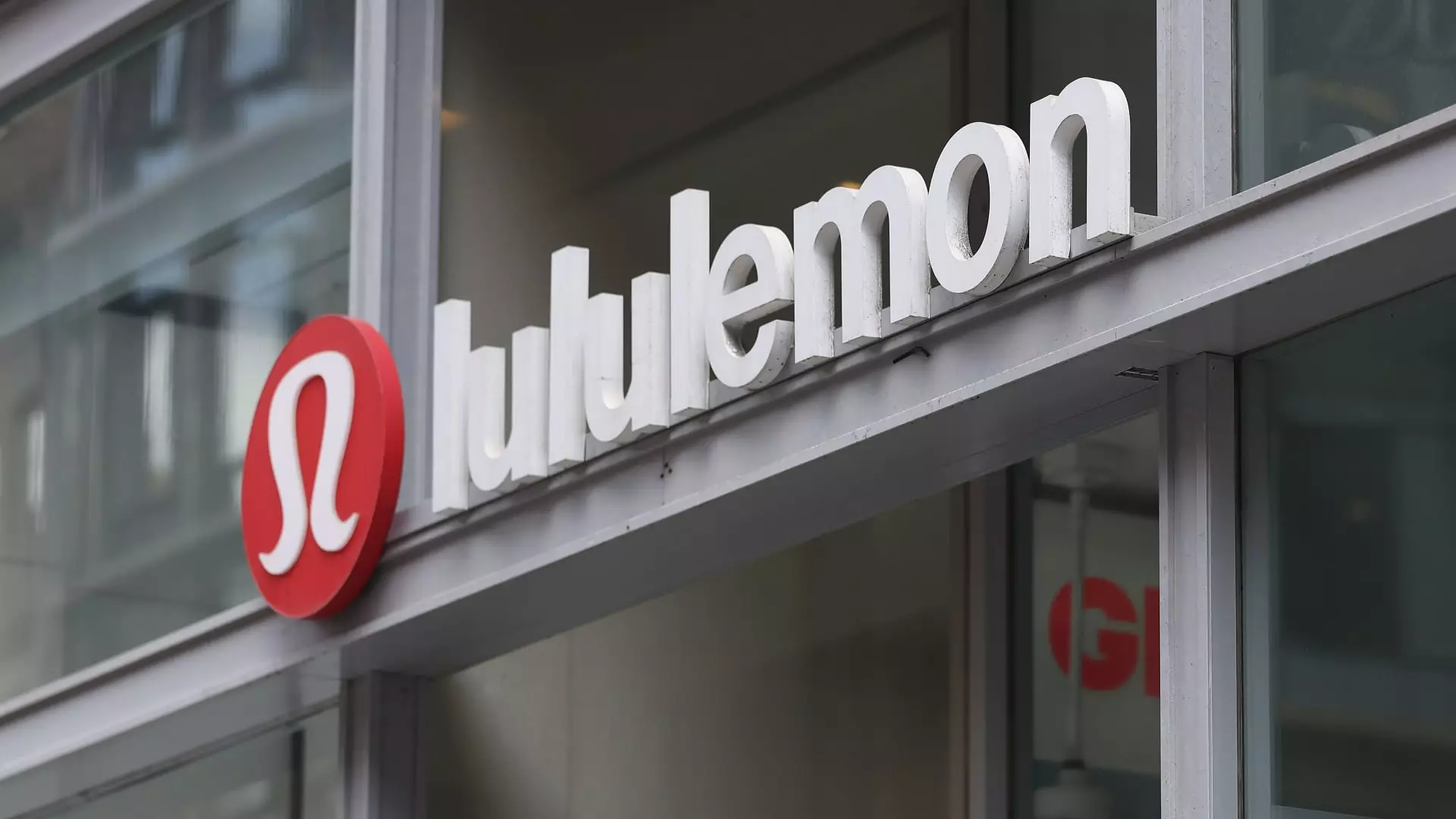Recently, the financial landscape has been jolted by President Donald Trump’s sweeping tariff imposition on several countries, and its repercussions are far-reaching. The initial aim of these tariffs appeared straightforward: protect American jobs and boost domestic production. However, the outcome is anything but rosy. Companies like Lululemon and Deckers Outdoor are experiencing share declines exceeding 11% and 14%, respectively. This prompts an essential inquiry: at what cost are we attempting to prioritize the production of American goods?
The goal of fostering a robust national economy should not undermine the operational backbone of companies relying heavily on international supply chains. Lululemon, for example, sources a staggering 90% of its merchandise from Southeast Asian suppliers, with Vietnam being particularly affected. The attachment of a 46% tariff not only raises prices for consumers but threatens the viability of the very businesses that contribute to the tax revenue government officials often tout as achievements.
The Erosion of Retail Giants and Everyday Consumers
As the repercussions of tariff policies reverberate through the market, retail giants like Dollar Tree face stark realities. Shares took a tumble, shedding over 9%, as the company may have to raise prices on the consumer staples that millions rely on. This isn’t merely a corporate effort to maintain profit margins; it directly affects working-class Americans already grappling with the high cost of living. The irony here is striking—government interventions designed to protect American workers might instead undermine them by raising the prices of everyday necessities.
Both profitability for corporations and affordability for consumers should exist in a delicate balance, yet the current trajectory seems to prioritize corporate profits at the possible expense of consumer financial health. Statements from Dollar Tree’s CEO hint at impending price hikes—an uncomfortable customer experience that the administration must not ignore if it hopes to secure working-class support.
The Banking Sector: A Sour Effect on Stability
The financial sector also appears bruised under the weight of tariff discussions, as major banks like Goldman Sachs and Morgan Stanley saw declines of nearly 8%. The immediate question is: what impact will this have on our economy as we veer down this path of reliance on tariffs? Banks are often regarded as barometers for economic health, and their downturn signals potential instability ahead.
A reliable banking system is critical for facilitating expansions and innovations in various sectors. If these financial institutions fail to thrive, the ripple effect will not just impact stockholders but also those seeking loans to purchase homes, start new businesses, or expand existing operations. The frightening pattern here is how quickly economic stability can become economic uncertainty, leading to tightening credit markets and decreased consumer confidence.
Luxury Brands and American Automotive: A Bleak Future?
While luxury brands like RH are wrestling with alarming declines of over 43%, Ford faces its own troubles as its stock falls nearly 4%. The latter’s employee pricing initiative might seem like a smart marketing strategy in the wake of increased tariffs, but can consumer sentiment sustain such offers without deep financial implications? This precarious balancing act puts added pressure on an already fragile automotive market.
The irony of the situation is that President Trump’s decision meant to protect American workers could inadvertently cripple the sectors meant to drive job growth in the U.S. The automotive and luxury markets, essential components for not only American innovation but job creation, appear dangerously close to experiencing significant setbacks.
Big Tech: The Silicon Valley Dilemma
The technological giants, historically unharmed by such fiscal policies, are also taking noticeable hits in share values, with declines around 8% for companies like Apple and Amazon. This prompts doubts about their future resiliency in an increasingly fortified economic environment. Major players like Microsoft are reconsidering their global strategies amidst tariff threats, hinting at a broader trend of uncertainty within the tech sector.
As these colossal corporations scale back initiatives, innovation—arguably the bedrock of U.S. economic strength—stands at risk. The paradox lies starkly in tech’s role as a job creator while concurrently being hamstrung by unfavorable policy decisions that can lead to heightened access costs for consumers, and hence lower adoption rates for emerging technologies.
A Cautionary Tale: The Costs of Protectionism
The cumulative effects of these tariff increases are a sober reminder that protections can come with their own set of costs, especially in a budging global economy. Rather than creating a booming economic environment, we are witnessing a cautionary tale where efforts to safeguard American interests might lead instead to stunted growth and diminished consumer power. Embracing innovation, agility, and open markets should trump outdated notions of protectionism, lest we find ourselves in a state of economic disarray instead of advancement.

